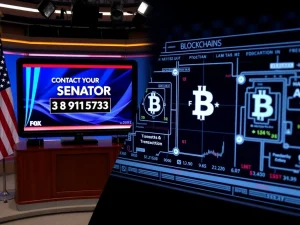BlackRock Reveals: GENIUS Act Transforms $266B Stablecoins into Regulated Payment Powerhouses

The crypto market is undergoing a seismic shift as the GENIUS Act reclassifies $266 billion in stablecoins from speculative assets to regulated payment tools. BlackRock’s latest analysis highlights how this change impacts 7% of the total crypto market, offering new stability and institutional trust.
How the GENIUS Act Redefines Stablecoins
The GENIUS Act, enacted on July 18, 2025, marks a turning point for stablecoins by:
- Reclassifying them as regulated payment tools instead of commodities or securities
- Requiring full reserve backing with U.S. Treasury bills, cash, or short-term repos
- Mandating bank-level audits and anti-money laundering compliance
- Prohibiting interest on stablecoin balances to emphasize transactional use
BlackRock’s Vision: Stablecoins as Programmable Money
BlackRock positions stablecoins at the forefront of financial innovation, calling them “programmable money” for real-time cross-border settlements. The firm notes:
| Metric | Value |
|---|---|
| Total stablecoin market | $266 billion |
| Percentage of crypto market | 7% |
| U.S. Treasury reserves held by issuers | $120 billion+ |
Global Competition in Crypto Regulation
While the U.S. prioritizes consumer protection through the GENIUS Act, other regions are taking different approaches:
- Europe: MiCA framework attracting institutional adoption
- Hong Kong: Permissive stance to encourage innovation
- U.S.: Focus on banking safeguards and dollar dominance
Challenges and Opportunities for Stablecoins
Despite regulatory progress, analysts identify several considerations:
- Depegging risks during market volatility
- Issuer concentration among major players like Tether and Circle
- Potential Treasury market disruptions during mass redemptions
- Adoption barriers in deposit-rich economies due to interest bans
The Future of Stablecoins in Financial Infrastructure
BlackRock envisions a hybrid system where stablecoins coexist with fiat currencies, enhancing:
- Programmatic efficiency in transactions
- Liquidity resilience across markets
- Real-time value transfers globally
FAQs About the GENIUS Act and Stablecoins
Q: How does the GENIUS Act affect stablecoin issuers?
A: Issuers must maintain full reserves, undergo regular audits, and comply with anti-money laundering regulations.
Q: Why does the GENIUS Act prohibit interest on stablecoins?
A: To emphasize their use as payment tools rather than investment vehicles.
Q: How might the GENIUS Act impact the U.S. dollar?
A: By reinforcing the dollar’s role in global liquidity through stablecoin reserves.
Q: What risks remain for stablecoins under the new regulation?
A: Depegging events and issuer concentration remain key concerns for regulators.









